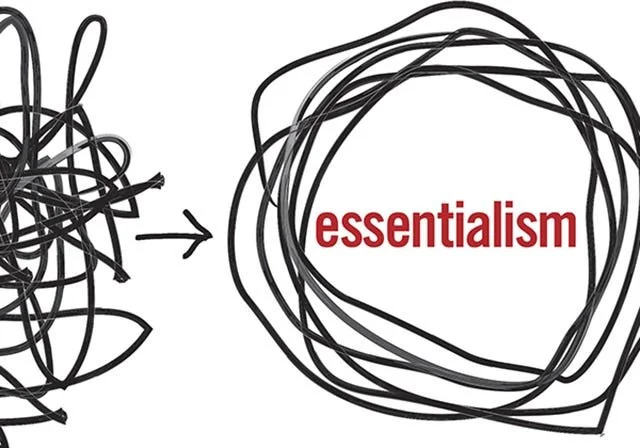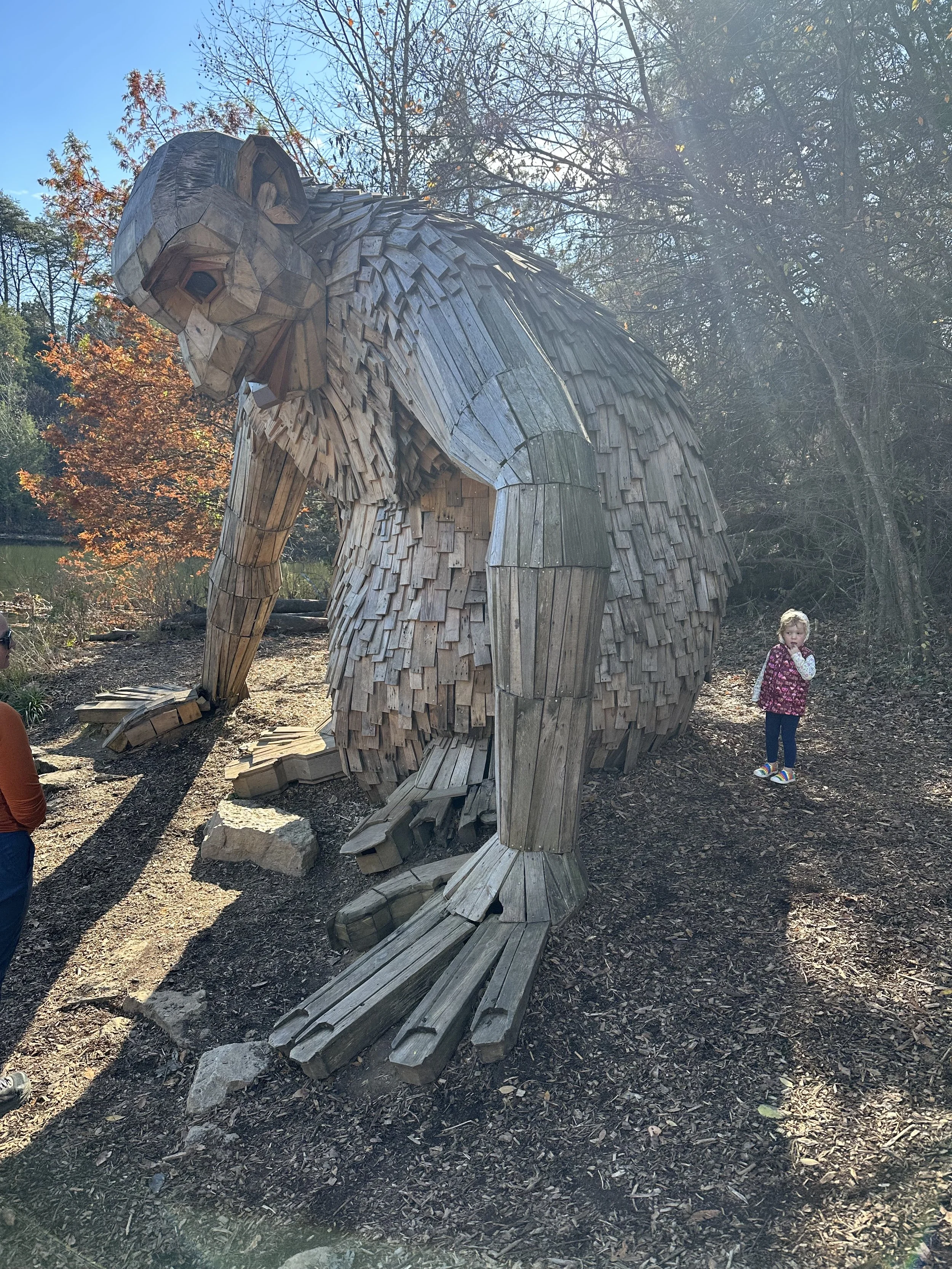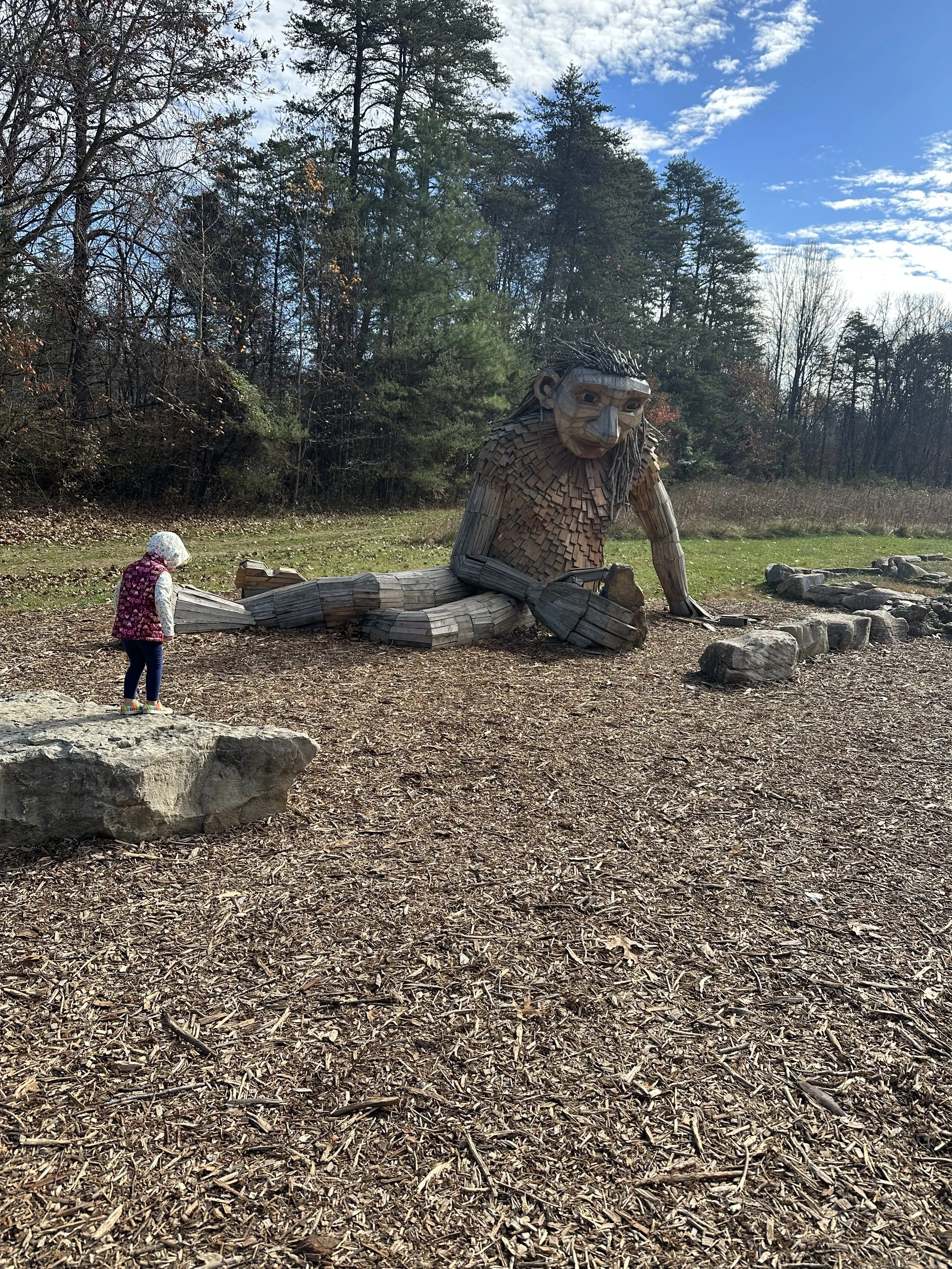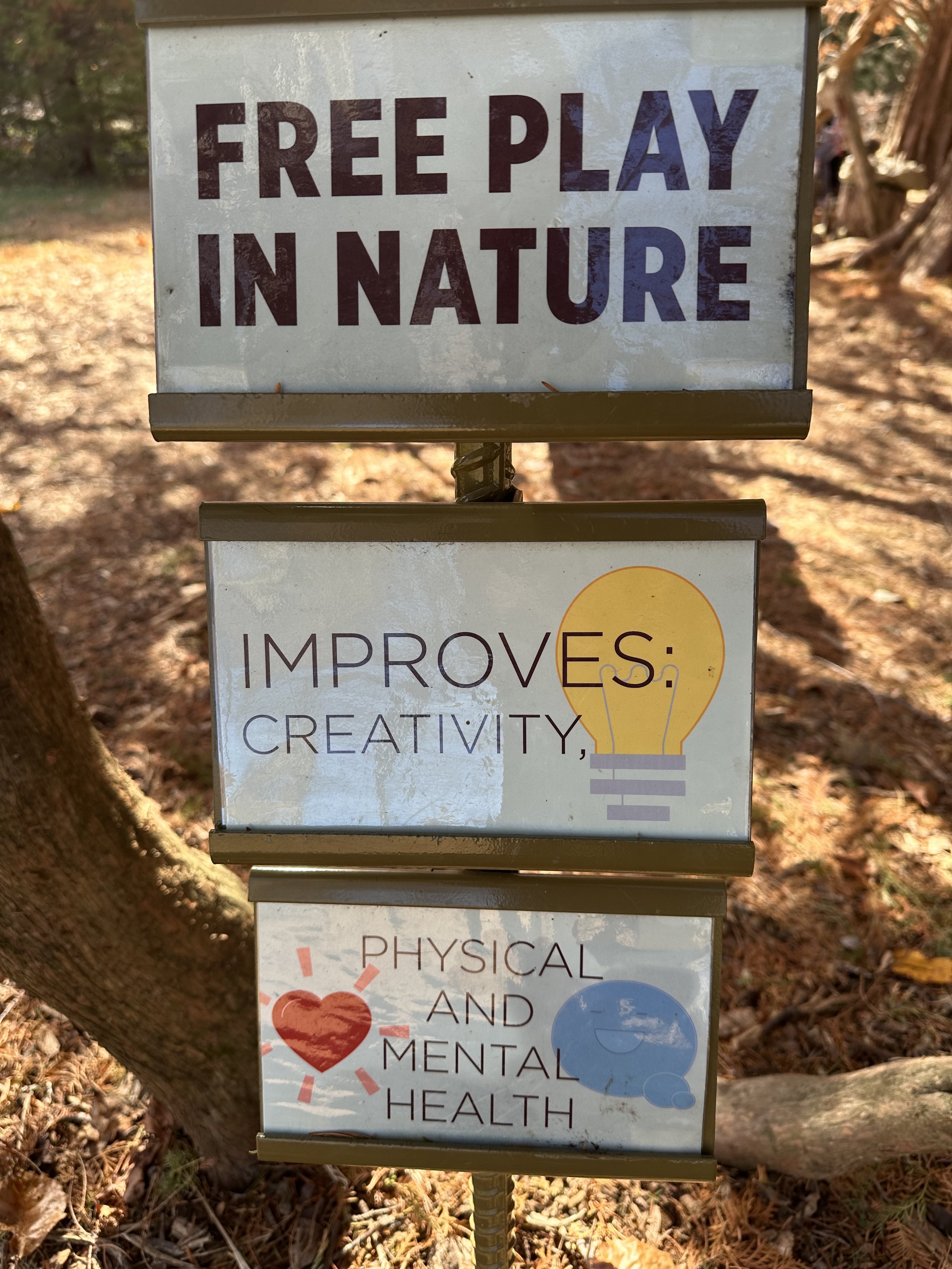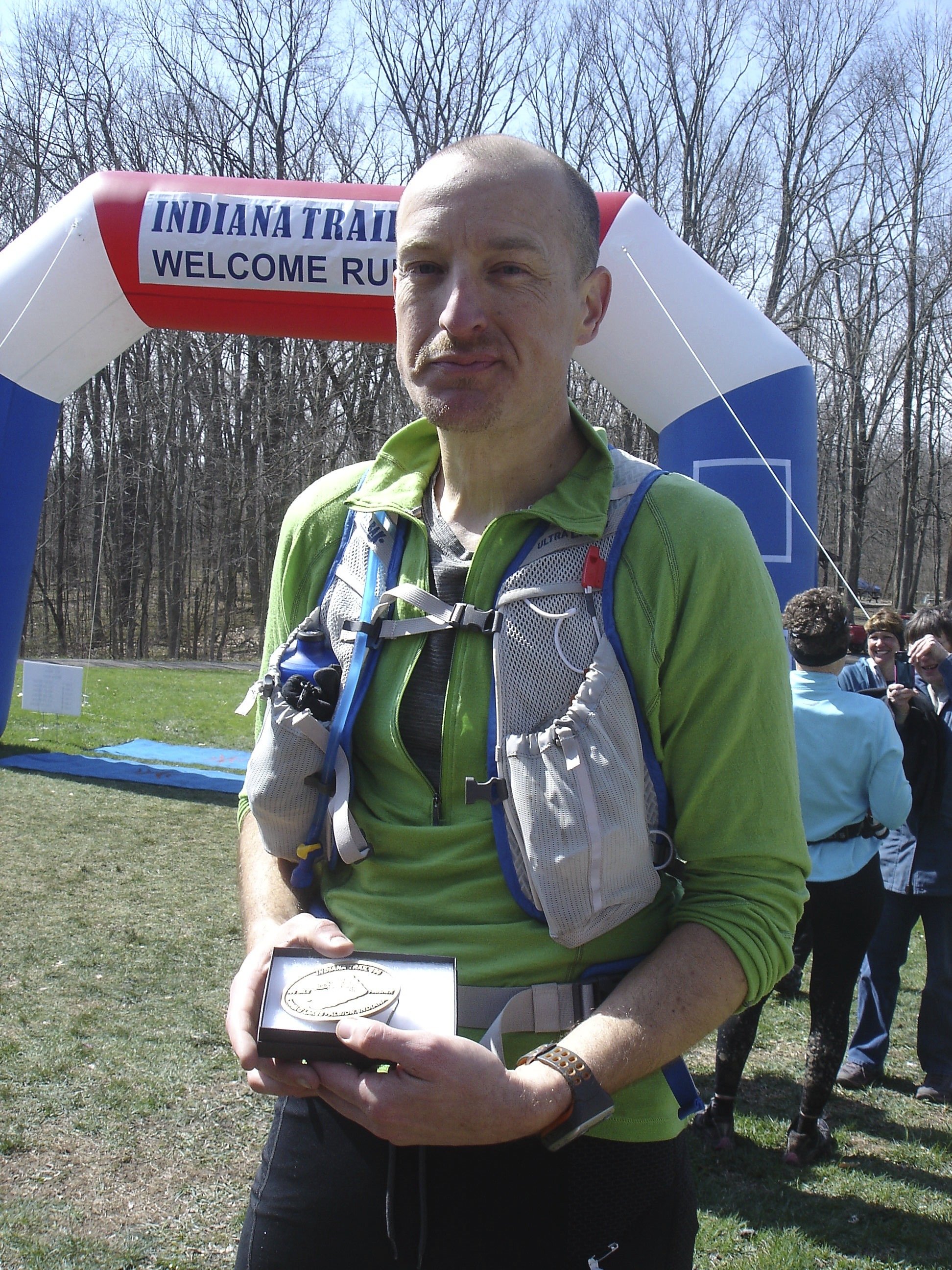What We’re Reading-December 2023
As the year comes to a close, our reading list for December is filled with thought-provoking and inspiring titles that have left a lasting impact on our minds. Here's a quick overview of the books that have captured our attention this month:
Turning Pro by Steven Pressfield:
Steven Pressfield's Turning Pro is a compelling exploration of the journey from amateurism to professionalism. Drawing on his own experiences and those of others, Pressfield delves into the mindset shift required to fully commit to one's craft. This book is a motivational masterpiece that encourages readers to overcome resistance and embrace the discipline necessary for true creative and personal fulfillment.
The Nature Fix by Florence Williams:
In The Nature Fix, Florence Williams takes readers on a captivating journey into the healing power of the natural world. Through a blend of science, personal anecdotes, and cultural insights, Williams explores the profound impact that spending time outdoors can have on our mental and physical well-being. This eye-opening book is a reminder of the deep connection between humans and the natural world, and it serves as a compelling call to prioritize interactions with the natural world in our daily lives.
Bewilderment by Richard Powers:
Richard Powers (The Overstory), a master storyteller, delivers another compelling tale with Bewilderment. This novel weaves together themes of parenthood, loss, and the delicate balance between humanity and nature. The story follows an astrobiologist and his son as they navigate the challenges of life, love, and the mysteries of the universe. Powers' lyrical prose and thought-provoking narrative make "Bewilderment" a rich and emotionally resonant read.
Essentialism: The Disciplined Pursuit of Less by Greg McKeown:
I love this book! Essentialism by Greg McKeown is a guide to living a more meaningful and purposeful life by focusing on what truly matters. McKeown introduces the concept of essentialism, encouraging readers to identify and eliminate non-essential activities, allowing them to make a greater impact in their professional and personal lives. This book is a practical and enlightening read for anyone looking to simplify their priorities and achieve greater clarity in their pursuits.
As the new year approaches, consider taking a dive into one of these books that offer valuable insights and perspectives that will undoubtedly leave a lasting impression. Whether you're seeking motivation, a deeper connection with nature, a compelling story, or guidance on leading a more intentional life, these December reads have something for everyone. Happy New Year!
Why We Don’t Do Black Friday
Happy Holidays, adventure seekers! As the hustle and bustle of the season approaches, there's a growing movement among those of us in the outdoor industry to reconsider the Black Friday chaos that has become synonymous with the post-Thanksgiving tradition.
Happy Holidays, adventure seekers! As the hustle and bustle of the season approaches, there's a growing movement among those of us in the outdoor industry to reconsider the Black Friday chaos that has become synonymous with the post-Thanksgiving tradition. At Crooked Trail Adventures, we've decided to join our pals at REI, by embracing the outdoors with the #OptOutside movement.
The struggle is real
Black Friday has evolved into a symbol of consumerism, encouraging individuals to indulge in shopping sprees driven by discounts and deals. However, the consequences of this mindless consumption are far-reaching. The pursuit of material possessions often leads to a never-ending cycle, where the joy of a new purchase is short-lived, replaced by a desire for the next big thing. At Crooked Trail Adventures, we believe that there's more to life than accumulating possessions – it's about creating meaningful experiences and connections. Some retailers, such as Patagonia, have joined in the movement by encouraging time outside, asking customers to repair, rather than repurchase items, and even donating all profits from Black Friday sales to charity.
James Clear, a renowned author and productivity expert, has shed light on the Diderot Effect – the idea that obtaining a new possession can lead to a spiral of consumption as we strive to maintain a sense of harmony among our belongings. This perpetual cycle of acquiring more can distract us from what truly matters. By opting outside on Black Friday, we aim to break free from the clutches of the Diderot Effect, recognizing that our well-being is not defined by the things we own but by the experiences we accumulate and the connections we forge.
Not every adventure needs to be an epic- spending time together is reason enough to get out
Stepping outside and immersing ourselves in the natural world provides a refreshing contrast to the chaos of consumerism. Time outdoors has a remarkable ability to ground us, allowing us to connect with our surroundings and cultivate mindfulness. Whether it's a hike through the woods, a stroll along a scenic trail, or simply sitting in quiet contemplation, these outdoor experiences contribute to our overall well-being. By choosing to #OptOutside on Black Friday, we are making a conscious decision to invest our time and energy in activities that promote personal growth and connection.
Benefits of Mindful Outdoor Activities:
Stress Reduction: Spending time outside has been shown to lower cortisol levels and reduce stress. This break from the hustle and bustle of shopping malls can provide a much-needed mental reset.
Improved Creativity: Natural landscapes have a way of inspiring creativity. Whether you're an artist, writer, or simply someone seeking new perspectives, the great outdoors can stimulate fresh ideas and perspectives.
Enhanced Relationships: Opting outside on Black Friday allows for shared experiences with loved ones. Building memories together in nature fosters stronger bonds and creates a lasting sense of connection.
Do what you can, where you are
At Crooked Trail Adventures, we invite you to join us in rejecting the mindless consumerism that often accompanies Black Friday. Check us out on Instagram and share your outside adventures with us this Friday. Together, let's build on a new tradition that celebrates the richness of life beyond the confines of the shopping cart.
Local Faves: Bernheim Arboretum and Research Forest
We’re lucky here in the Louisville area to be a short drive to fantastic outdoor recreation opportunities. Hoosier National Forest has several districts within an hour or so drive, there’s Mammoth Cave to the south, and closer to home we have serious hiking at the Knobstone Trail, O’Bannon Woods, and Jefferson Memorial Forest.
But for sheer beauty and a curated conservation experience, Bernheim Arboretum and Research Forest can’t be beat.
A hike among giants is good for the soul
Bernheim is 16,000+ acres straddling Bullitt and Nelson Counties about an hour south of the city on I-65 just off of exit 112. Isaac Bernheim purchased and endowed the land in 1929, with a vision of combining the natural beauty of the landscape with a research abroretum and the arts to create a space for renewal.
Today, the park sees 500,000 visitors per year, and one visit is all it takes to see why!
For hiking enthusiasts, there are over 40 miles of trails to explore. From <.25 mile interpretive trails to the 13+ mile Millennium Trail, there really is a hike for every interest and ability. A favorite attraction is the trail linking the "Forest Giants,” three sculptures by Danish artist, Thomas Dambo. The giants were created from recycled wood and are part of a series of sculptures Mr. Dambo has created across 5 continents!
Little sister giant playing with “blocks”
Bernheim is also a living laboratory. In addition to the arboretum, there are weekly educational programs, art exhibits, and night sky explorations. Special events include dinners where participants visit the edible garden for ingredients, and musical performances at SONICBernheim events.
Even the frogs are giant at Bernheim!
The folks at Bernheim have also created an incredible 10 acre natural play space, the Playcosystem. They even participate in the 1000 Hours Outside Challenge, which is absolutely something we can get behind!
Yes, yes it does
Perhaps the best part of this jewel, though, is how welcoming they are of volunteers. There is always work to be done at a park of this size, and it takes an army of volunteers to keep things running. Please consider joining in the effort- volunteering provides a sense of pride that only thoughtful stewardship can provide.
Never Say ‘Nature’ Again
As seasoned outdoor guides, we've spent countless days and nights hiking, climbing, paddling, biking, swimming- living- within the natural rhythms of the great outdoors. Over the years, we've come to realize something profound: the term 'nature' itself carries a connotation that often separates us from the very essence of life.
Ok don't get me wrong, I understand that nature is important for environmental reasons, and if you like nature while I disagree [sic] I understand why. But my God, it's soooo boring. I live in Minnesota where it's either god awfully hot or stupidly cold. It's boring, bugs are everywhere and there's no air conditioning. I'll never understand why anyone likes hiking. The only thing people do is talk or just observe things or fish or some BS. I hate going out there.
-10macattack via reddit
As seasoned outdoor guides, we've spent countless days and nights hiking, climbing, paddling, biking, swimming- living- within the natural rhythms of the great outdoors. Over the years, we've come to realize something profound: the term 'nature' itself carries a connotation that often separates us from the very essence of life. Humans have gradually created a distinction between ourselves and ‘the environment,’ which couldn't be further from the truth. In reality, the natural world is not 'out there'; it's the only 'real' world we know. To truly embrace this reality, we must eliminate the use of the word 'nature' from our vocabulary.
Just observing or some b.s.
The term 'nature' implies a separation, a detachment from the world around us. It's as if there's a line between the human realm and the 'natural' one. But this division is a mere illusion, a social creation, one that we need to dispel. Instead, we should recognize that we are not observers of the natural world; we are an integral part of it. Our lives are interwoven with the ecosystems, landscapes, and creatures that make up our planet. The more we acknowledge this unity, the more fulfilled and connected we become as individuals.
So why should we retire the word 'nature' and embrace the interconnectedness of our true home? Here are some compelling reasons:
Redefining Our Place in the World: By abandoning the term 'nature,' we shift our perspective. We no longer perceive ourselves as outsiders looking in; we become participants in the grand symphony of life. This shift in mindset can lead to a profound sense of responsibility and stewardship for our environment.
Deepening Our Connection: When we stop thinking of 'nature' as something separate, we begin to realize that our existence is inseparable from the natural world. We depend on clean air, water, and food for our survival. Every breath we take, every sip of water we drink, and every morsel of food we consume is an intimate connection to the 'real' world. Every awe inspiring view reminds us that we are a small part of something much larger than ourselves. This humility can also remind us that we are connected to each other, no matter our differences.
Time outside can deepen our connection to the world and each other
Promoting Conservation: Viewing the world as a singular, interconnected system underscores the urgency of preserving it. We understand that the destruction of a forest in a remote corner of the world affects the delicate balance of our entire planet. This perspective is vital for encouraging global conservation efforts.
Enhancing Our Well-being: As individuals, we experience increased happiness, reduced stress, and improved mental and physical health when we immerse ourselves in the 'real' world. It's not just about recreational activities; it's about recognizing that spending time outdoors connects us to the very source of our being.
Being outside makes us feel good physically and mentally
Fostering Empathy: The more we shed the notion of 'nature' and acknowledge our symbiotic relationship with the environment, the more empathetic we become. We develop a deeper understanding of the plight of other species, as we realize that their survival is intertwined with our own.
So, how do we go about eliminating the word 'nature' from our vocabulary and embracing our inseparable connection with the world around us? It begins with mindfulness. Instead of saying "I'm going out into nature," we might say "I'm going out into the world" or simply, “I’m going outside." These small linguistic adjustments can have a profound impact on how we perceive and interact with our environment.
As outdoor enthusiasts and guides, it's our responsibility to lead the way in this linguistic and perceptual shift. We encourage our clients and friends to reframe their relationship with the world. The 'real' world is not 'out there'; it's right here, within us and around us. It's time we embrace this truth and nurture our connection to the beautiful, intricate tapestry of life that sustains us all. Never say 'nature' again, for in doing so, we reaffirm our unity with the only 'real' world we know.
The Indiana Trail 50: Some People Never Learn
I first came to Chain O’ Lakes State Park in Albion, Indiana to attempt my first 100 mile trail race. It was mid- April, and the week prior to the race had me hopeful for the days to come.
Then it rained.
A lot.
I first came to Chain O’ Lakes State Park in Albion, Indiana to attempt my first 100 mile trail race. It was mid- April, and the week prior to the race had me hopeful for the days to come.
Then it rained.
A lot.
Six inches of rain fell in the 36 hours before our 6:00 am start, and 8 minutes into the race we were walking through knee deep water. And to add to the fun, it was snowing.
Long story short: my goal of sub 24 hours was out the window, but I eventually finished the race- with my pacer, Ms (now Mrs) Emily Ross running the last 16 miles with me- in a 29 hour slog.
A younger person will run 100 miles for a belt buckle
Fast forward 10 years, and we were back. Emily made a goal of completing her own 50 mile race this year, and we thought a fall race gave us the best chance to show up ready after a full summer of training. We had a few open weekends in the fall, and- lo and behold!- the Indiana Trail races had been moved from April to October a few years ago.
For the likelihood of better weather.
Or something like that.
We arrived Friday night in a steady light rain. As the evening wore on, temperatures dropped, winds picked up, and the rain - my goodness, the rain - persisted.
Everybody looks good at the starting line (or the hotel before)
We wouldn't have minded the light rain and 40° temperature so much really, if both headlamps had been working at the 6:00 a.m. start. That's the thing about ultramarathons: there is no such thing as the unexpected.
We splashed through a muddy 18 miles when my right knee showed the first signs of iliotibial band soreness. By the time we reached the start/ finish after the first 25 mile loop, the pain had intensified, and I felt like my race could be in jeopardy. I could only run 40 to 60 steps at a time before taking a two to three minute walking break.
I was really slowing us down.
We left that aid station and by mile 31 I was in a pretty dark mental place. We had trained all summer, and had begun doing all of our long runs together, with a plan to finish Emily's first 50 miler together as well. For me, finishing the race was now in doubt.
I began to get really, really down, telling myself that she deserved a better running partner, and I didn't want to be the type of person who quit. I was struggling to do the math, and wasn't sure if I could finish before the 15-hour cut off at 9:00 p.m. at our current pace. I was also feeling bad because I knew that Emily had stated she wanted to finish in 12 hours.
We were moving, but slowly.
And that's when the coach in Emily came out. She reminded me that this is what we were here for, that we paid for this “fun,” and we were lucky to have bodies that (mostly) allowed us to do this.
She took all the pressure off, and reminded me that we actually had several hours to do the last 15ish miles. I was down to running 20 steps at a time before taking those walking breaks, but we began talking, laughing about the mud again, and enjoying the kindness of the volunteers at the aid stations (who are absolutely incredible, by the way). We were almost having fun!
By the time we reached the last aid station at mile 47 1/2, I knew we had one last muddy hill and then a flat stretch to get us back to the finish line.
That’s us, I swear
It was not just my knee that took a beating that day. My ego got pretty bruised as well. I entered the race thinking that I was going to be helping Emily finish her first 50 miler. Ultimately, it was her grace and kindness that helped me finish what could be my last one.
Some people are just slow learners.
She’s a keeper

